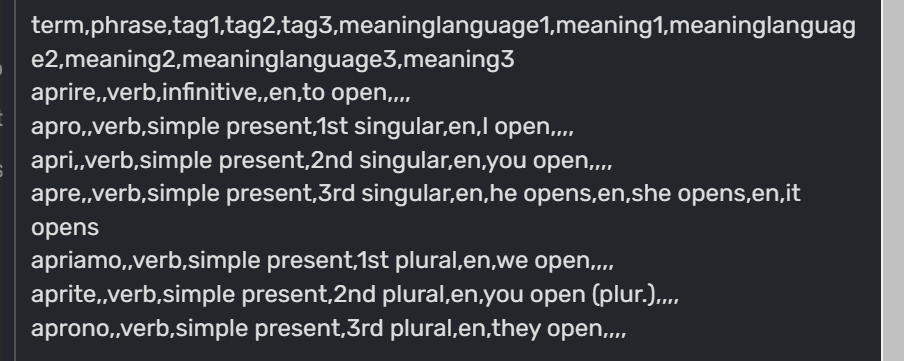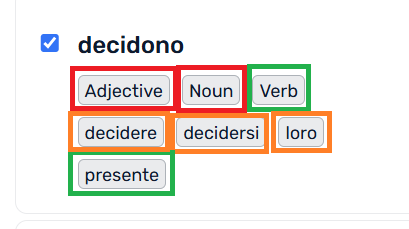Hello friends,
So, I’m preparing a vocabulary for my wife who is learning italian (my mothertongue). We are using the same list of words for our learninf (I’m learning her Armenian), but importing the vocabulary seems to mess up the tags, assigning the wrong ones to terms (and sometimes adding others).
It seems the platform automatically assigns incorrect tags to the terms.
Here’s an example of the .csv file I used to import terms for the verb to open (aprire) in Italian:
term,phrase,tag1,tag2,tag3,meaninglanguage1,meaning1,meaninglanguage2,meaning2,meaninglanguage3,meaning3
aprire,verb,infinitive,en,to open,
apro,verb,simple present,1st singular,en,I open,
apri,verb,simple present,2nd singular,en,you open,
apre,verb,simple present,3rd singular,en,he opens,en,she opens,en,it opens
apriamo,verb,simple present,1st plural,en,we open,
aprite,verb,simple present,2nd plural,en,you open (plur.),
aprono,verb,simple present,3rd plural,en,they open,
As you can see the infinitive tag is present only on the aprire line. The problem is that when I import this into LingQ, all simple present forms also get tagged as “infinitive”. This completely defeats the purpose of tagging vocabulary accurately because it mixes different grammatical forms under the same tag.
The vocabulary gets imported correctly, the header line is OK, yet I get this result:
Did anybody else have this issue? Do you know how to solve it?


